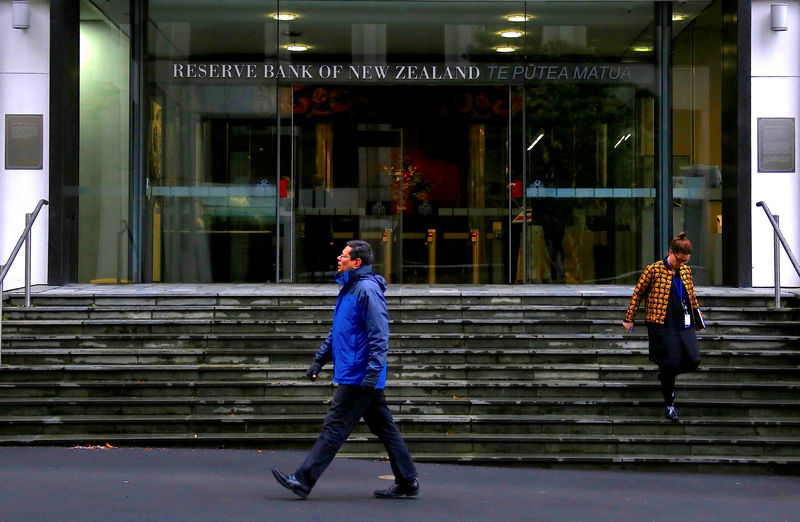WELLINGTON (Reuters) - New Zealand's central bank on Thursday confirmed increases to capital ratio requirements for the country's banks, a hike that is expected to hurt the bottom line of the top Australian lenders who dominate the market.
The Reserve Bank of New Zealand (RBNZ) did attempt to soften the blow by allowing extra time for banks to implement the changes, which it said would better enable the country to weather economic turbulence.
The Australian banks who make up 90% of the market warned during consultation with the central bank on the higher ratios that increases could force them to reconsider doing business in New Zealand.
The board of Australia and New Zealand Banking Group (ANZ) (AX:ANZ) was meeting immediately after the announcement to discuss the changes, a source with knowledge of the gathering told Reuters. The source was not authorized to speak on the record.
Under the changes, the local units of ANZ, Commonwealth Bank of Australia (CBA) (AX:CBA), National Australia Bank (NAB) (AX:NAB) and Westpac Banking Corp (AX:WPC) will have to raise their total capital to a minimum of 18%, and smaller banks to 16%. The current minimum requirement is 10.5%.
For high-quality Tier 1 deposits, the minimum ratio for the top four banks almost doubles to 16%, while smaller banks will be required to hold 14%.
The changes will be phased in over a seven-year period from July 2020, rather than the five years originally proposed.
The RBNZ also offered more flexibility to banks on the use of specific capital instruments, after taking into account industry views after months of consultation.
The big four currently own an average of 13.2% in Tier 1 capital and 14.1% in total capital. It is estimated the quartet will need to raise as much as NZ$20 billion ($12.81 billion) in new capital over the seven-year period to meet the new requirement.
TS Lim, an analyst at Bell Potter, said the longer transition period provided some much needed breathing room for the Australian banks, which are already under pressure back home amid the fallout of a government-backed inquiry last year that found widespread misconduct in the financial sector.
"I think the banks should have enough capital to cope with the changes, all they need to do is reduce the dividend flow from New Zealand back to Australia and that will get them across the line," Lim said in a note.
However, Jeffries analyst Brian Johnson said the changes were marginally better than anticipated but will "crimp the banks ability to stream capital from New Zealand back to Australia, especially for ANZ."
"The big implication from these changes will be on the sector's dividend payout ratios."
